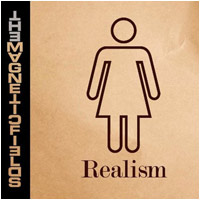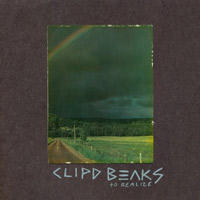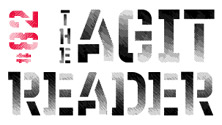
Realism
Nonesuch
Realism is the third entry in the Magnetic Fields’ “no-synth” trilogy, a run of synthesizer-free records that hearken back to the more traditional songwriting conventions of the 1950s and 1960s. Or is it the 1560s? For much of Realism, the Fields sound like the house band at a Renaissance fair. And while stately mandolins and flutes work just fine for jousting matches, turkey-leg dinners, and LARPing, Stephen Merritt’s obstinate traditionalism prevents these immaculately crafted songs from becoming much more than pleasant, sleepy background music.
The album hits its high point early on with opener “You Must Be Out of Your Mind,” a clever and cynical kiss-off to an ex-lover who’s screwed over the song’s narrator one too many times. Think “Since You Been Gone” by way of 69 Love Songs. And on “The Dada Polka,” the band attempts to validate their “synth-free” limitation by creating an undercurrent of ambient noise without the aid of keyboards or digital technology. But songs like “The Dolls’ Tea Party” and “Everything Is One Big Christmas Tree” are painfully quaint and too cuddly to appeal to anyone outside of 5-year old girls who have yet to discover Bratz dolls and Lady Gaga. There’s nothing inherently wrong with rock bands looking to children’s music for inspiration—just ask They Might Be Giants, whose recent kid-friendly releases were some of the band’s funniest and catchiest records yet. But on Realism’s most childish tracks it’s hard to tell whether the band is merely being ironic or just immature. Either way, the whole affair feels pointless and even a little false which, for anyone who’s ever gotten happily lost navigating the Fields’ three-hour masterpiece, 69 Love Songs, makes for one of the earliest and biggest disappointments of this young decade.
David Holmes

Romance Is Boring
Arts & Crafts
Romance Is Boring is not about reaching a new plateau. Los Camepsinos aren’t in the business of converting new fans, though their enthusiasm is contagious. At this juncture, if you aren’t already hip to their unique identity as indie’s twee chaos kids and their boggling hyper-literate delivery, then this, their third and most accomplished record, won’t change your mind. Still, on many occasions throughout the album, maturity has made their anxious scribbles and earnest poesy all the more tolerable. Instead of playing with powder-keg riffs inside giant expectations, here those grand statements and ambitious goals are realized. From the elegant temper of “Who Fell Asleep In” to the ocean-sized shanty in “The Sea Is a Good Place to Think About the Future,” there is massive space for strings to swell, glockenspiel to plink out morse code, and Gareth Campesino’s multi-syllabic confessionals to crest into infectious communal chants and slogans. Of course, they are kicking around in the same Arcade Fire sugar-buzz dynamics, piling on texture while desperately trying to convey equal fits of joy and dread. That youthful spirit shouldn’t be confused with emotive American mall punk (even when “Plan A” sounds a tad contrived). As hopped-up and trend-grabbing as their manifestations might lean, the Campesinos’ music is filtered through a lens of pop heartache and deeply driven by dramatic melody.
The title track is traditional Los Campesinos, only now their once chiseled Pavement tributes are dressed up in bombastic baubles, and on “We’ve Got Your Back,” once annoying idiosyncrasies have become charming accents. If you’ve had the pleasure to watch this band grow, you’ll be pleased with the fortification, the preciseness of their arrangements, and the influence of several tours across the unending expanse of the USA. As a nervous, fidgety Englishman, Gareth Campesino still exists in worry. But the care and overriding optimism ingrained in this batch of compositions proves his journeys in the wild west have been hopeful fodder for his unsettled muse.
Kevin J. Elliott

To Realize
Lovepump United
Clipd Beaks has always tended to defy easy characterization, and so it’s fitting that To Realize, the band’s second full-length album, seems to go in a hundred different directions at once. That’s not to say that the record isn’t focused. To the contrary, it documents how the Oakland-via-Minneapolis trio has gelled as well as the distinctive noisy psych-drone sound the group has crafted over recent years.
At times, that sound recalls pure psychedelia, sometimes heavy noise rock, and at other times it moves into Krautrock territory. As a whole, To Realize takes on a bit of a sinister tone, and most of the record consists of extended jams with hushed vocals floating over layers of guitars, feedback and tribal percussion. Everything seems to work best during the band’s epic dynamic explorations on songs like “Home” and “Atoms,” which shift between quiet drone passages and crashing climaxes that mix in trumpets and saxophones with the heavily distorted guitars. These louder moments contrast nicely with muted sounds of “Shot on a Horse” and the fittingly-titled “Desert Highway Music,” a song that slowly builds on a clean, relaxed groove before hauntingly running out of gas.
While To Realize clocks in at a sprawling 60 minutes, the album’s length is necessary to get the most out of each individual song. And so while it’s hard to tell which directions Clipd Beaks might pursue in the future, there’s plenty enough here to occupy the mind for the time being.
Ron Wadlinger

Teen Dream
Sub Pop
In case you were wondering, no, Beach House is not the latest in the seemingly endless torrent of sun-damaged, surfed-up indie acts that keep popping up across the country. Despite their band name, the music of Victoria Legrand and Alex Scally, now on their third album, more accurately evokes forests, fields and front porches than sandcastles and swimtrunks. On their first two releases, the instrumentation was as muted and muffled as the dying sunlight at dusk. But on Teen Dream, Legrand and Scally take a brighter, cleaner approach by blanketing Legrand’s mossy church organs with high-flying guitar licks and Grizzly Bear–worthy vocal harmonies. Without sacrificing their unique songcraft, careful arrangements and subtle underpinnings of melancholy, Beach House have made their sunniest and most accessible album yet.
Opener “Zebra” is the most bombastic thing the band has ever put to tape, which is to say it doesn’t possess half the histrionics of the most reserved Arcade Fire or Band of Horses song. (For Beach House, so much as a crash cymbal hit is a big step.) But as a matter of fact, a little bombast serves the habitually laidback band well, resulting in the most thrilling (and one of the best) songs of their career. Elsewhere, “Walk in the Park” is an effortlessly perfect slow jam in the tradition of past BH classics like “Gila” and “Apple Orchard,” while “Lover of Mine” is a sexy pop number that sounds a bit like Bat for Lashes’ “Daniel” on horse tranquilizers (which turns out to be a good thing).
Some long-time listeners might be put off by the way Beach House’s tried-and-tested sound has evolved on Teen Dream. But while Legrand and Scally could probably remake their debut another five times over without irking too many of their diehard fans (myself included), the possiblities for this young band have now expanded far beyond their modest, yet impressive, beginnings.
David Holmes
MP3: “Norway”

Realize the Ghost
Tricycle
Named after Wonder Woman villains who can devastate small areas of land with their swan song, as well as control birds, render bullets useless and rearrange matter, the Silver Swans create an almost as devastating take on electronic pop on their debut, Realize the Ghost. Still, it’s safe to say they probably have more in common with influences like Ladytron and the Knife than the DC heroine’s telepathic foes.
Ann Yu (also of LoveLikeFire) and Jon Waters’ collaboration began with the title track, which led to recording a whole album. That song’s quivering bassline builds into darkly hued pop, crafted with soaring keyboards and ethereal vocals. Similarly, it’s the low-end that leads “Heartbeat” (named in homage to the Knife’s “Heartbeats” or simply a coincidence?) before Yu delivers the song’s half-spoken vocals, which at times take on a sinister tone. “Let me feel a heartbeat. Tum-tum, tum-tum,” she repeats, mimicking a heart at the close of the song. The synthetic “Moving On” reveals the Ladytron influence, but the rest of the album demonstrates a wide-range of sounds, from the lounge ambience of “I” to the reggae rhythm of “Electricity.” And “Little Pieces of Me” answers the question of how it would sound if Ennio Morricone started a shoegaze band. While telepathy and deflecting bullets may elude this duo, their power lies in crafting mesmerizing songs.
Josie Rubio

The Calcination of Scout Niblett
Drag City
However personal the mood strikes throughout Scout Niblett’s calcinations, however many demons get extracted from her pores in her self-imposed sweat box, Steve Albini is just as responsible, and by now, should be sharing the marquee alongside one of his favorite clients. The Calcination of Scout Niblett, with the deft hand of Albini being an undeniable force when talking drum sounds, amp settings and mic placement, buzzes stark and stunning like a quiet, yet devastating, steamroller.
This very well could be Niblett’s official coming out party. It really is her show, with little, barebone hymnals, perhaps first coming to life being hummed late at night, have become monstrous in sonic scope, making it hard to tell if the conviction of her voice would translate as well in a bedroom recording. In one extreme, it makes “Kings” a tribal march teetering upon a doom-metal warpath, and on the other, as with the sultry “Duke of Anxiety,” the raunchiest siren song Cat Power never wrote.
The Calcination is a statement comparable to PJ Harvey’s scathing Rid of Me, writhing in similar raw urgency, or the best of Kim Deal’s downers, where the minimalist glow of a roadside flare burns slowly. Some might call it slow torture. Niblett’s calculated misery and lethargically paced exorcisms demand complete attention. Without it, her execution could be viewed as skeletal and lacking depth. Thanks to Albini, though, pagan lullabies like “Cherry Cheek Bomb” drudge up post-grunge tones on mega-tranquilizers, lending the album an almost Cobain-esque nostalgia. There’s as much In Utero in The Calcination as there are Niblett’s catgut heartstrings and creative soul, and the battle to the top is is an intriguing draw.
Kevin J. Elliott
MP3: “The Calcination of Scout Niblett”
ALBUM REVIEWS
Surfer Blood, Astro Coast
Four Tet, There Is Love In You
Yellow Fever, Yellow Fever
Oh No Ono, Eggs
Kevin Barker, You & Me
Lindstrøm & Christabelle, Real Life Is No Cool
The Red Krayola with Art & Language, Five American Portraits
Vampire Weekend, Contra
Dragonette, Fixin to Thrill
Owen Pallett, Heartland
Freedy Johnston, Rain on the City
Joyful Noise
The King Khan & BBQ Show, Invisible Girl
The Dry Spells, Too Soon for Flowers
